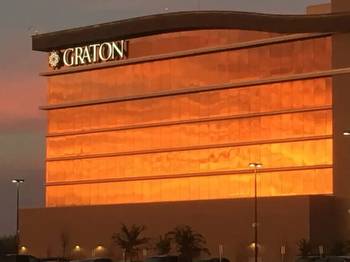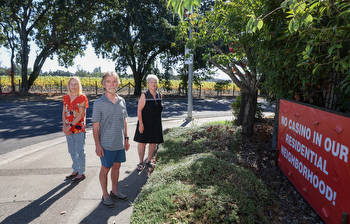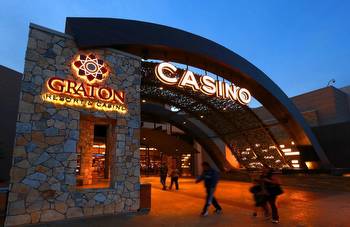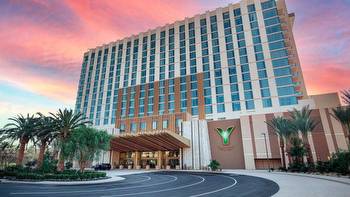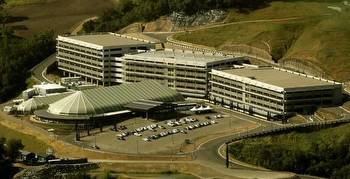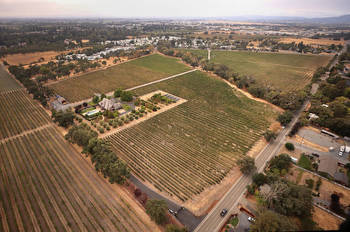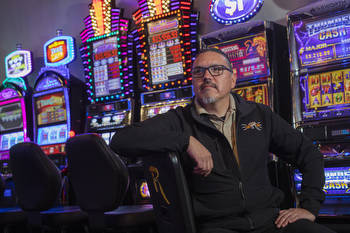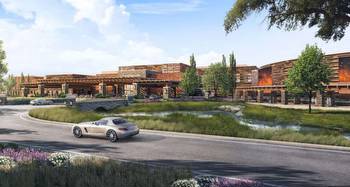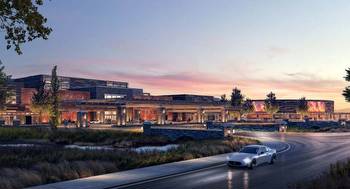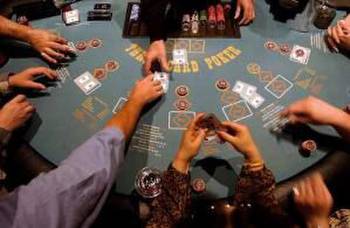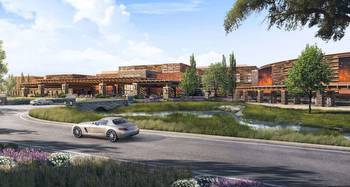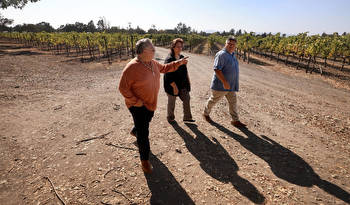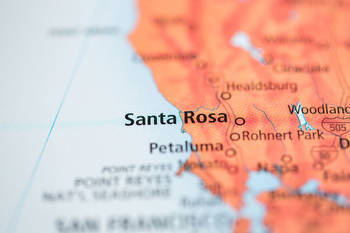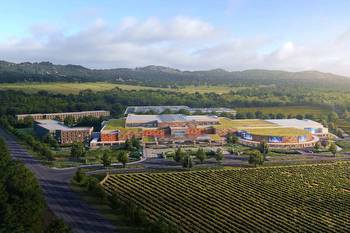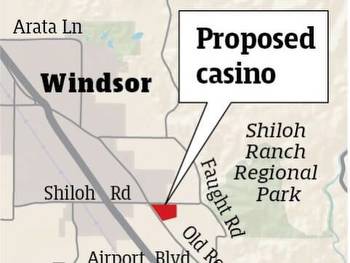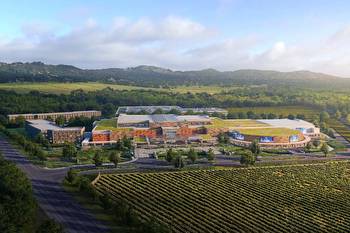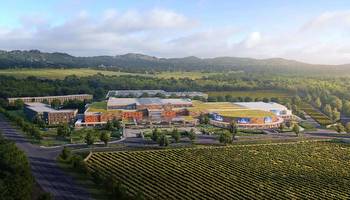Koi Nation tribe's plan to build Sonoma County casino sees pushback from rival tribal gaming operation
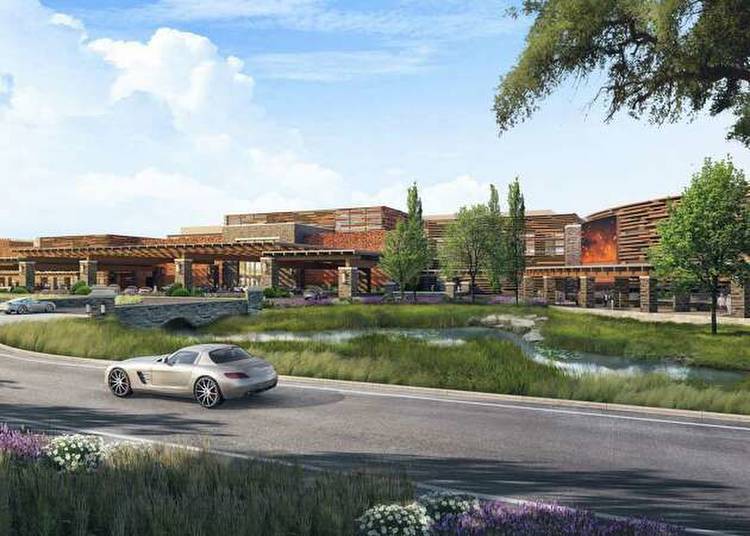
Two days after the Koi Nation Native American tribe announced plans to build a $600 million casino and resort in Santa Rosa, the Federated Indians of Graton Rancheria, who run the largest gaming operation in the area, said they opposed the move and cast doubt on the Koi Nation’s historical ties to the area.
“This is an egregious attempt at reservation shopping outside the Koi Nation’s traditional territory and within the territory of other federally recognized tribes,” said Greg Sarris, the chairman of the Federated Indians of Graton Rancheria, which operates the Graton Resort and Casino in Rohnert Park, in a statement.
Koi Nation spokesman Sam Singer said his tribe took offense to the use of the term “Reservation shopping” and said the Koi people have been in both Lake County and Sonoma County for thousands of years.
“The Koi people are clearly within their tribal territory and will continue their quest to build the resort and casino,” Singer said.
The proposed site for the Koi Nation development at 222 E. Shiloh Rd. is only about a 20 minute drive north from the Graton Resort and Casino, and could siphon off some of the millions of dollars in gaming and other revenues the tribe has said its operations create annually.
Sarris said the Koi Nation was previously known as the “Lower Lake Rancheria,” reflecting the tribe’s ties to the Lower Lake area of Lake County. He said the tribe changed its name in 2012 during a prior attempt to acquire gaming rights in the Bay Area.
Singer said the Lower Lake Rancheria name was used by the U.S. government but that “Name of the Koi people will always be the Koi people.”
Sarris sought to further drive a wedge between the Koi and Sonoma County, saying they had never been associated with the county, “Linguistically or culturally, as a people indigenous to its landscape,” adding that “Sonoma County is indigenous to the Southern and Southwestern Pomo language groups” and that the Koi Nation is a Southeastern Pomo tribe.
Singer said the Russian River Valley “Is home to a number of Pomo, including the Koi Nation,” adding that when the Rohnert Park site was proposed, “The Koi did not oppose their Pomo brethren seeking that land.”
It was not immediately clear what form Sarris’ opposition would take. A press representative was not able to provide answers to emailed questions of clarification.
The Koi Nation has been a landless tribe since the federal government sold the last of its land in Lake County in the 1950s, according to its website.
That has not stopped the tribe from making previous pushes to establish themselves along with gaming operations, including an ill-fated bid that would have seen the northeastern tip of the decommissioned naval base at Mare Island in Vallejo transformed into a 3,000 slot machine casino with entertainment and restaurants.
Sarris referred to that attempt, as well as another unsuccessful bid to acquire and develop a reservation and casino near the Oakland International Airport, as proof the Koi did not have ancestral ties to Sonoma County.
The federal government also must designate reservation land as belonging to a particular sovereign tribe before any casino can be built. The tribe previously said its attorneys have moved to place the Sonoma County land in a federal trust, making it eligible for gaming under the federal Indian Gaming Regulatory Act.
Singer acknowledged the prior attempts, but said that the Federated Indians of Graton Rancheria also looked at many locations before they settled on their current site.
“When they settled on this (site) the Koi people were supportive of them,” Singer said. “We hope that they will rethink this stance and become supportive of other Native Americans at their effort of economic revitalization and opportunity.”
Singer also said the Koi spoke with the Graton tribe about an ownership stake in their proposed development before it was announced, but never heard back from them. A press spokesperson for the Graton Resort and Casino said, “I don’t have that information” when asked about the ownership stake and if Graton also looked at other sites.
“What we get in return is a press release,” Singer said, referring to Sarris’ statement.
According to the Koi Nation website, their ancestors lived on the island village of Koi in Clear Lake
After suffering abuse at the hands of colonizers in the mid 1800s, including enslavement and sexual abuse, the U.S. federal government in 1916 approved the purchase of a tract of land between the towns of Lower Lake and Clear Lake Heights, according to the Koi.
The land was eventually declared uninhabitable by the Bureau of Indian Affairs, but Koi families were ordered to either live on the property or lose their rights to it, according to the tribe. It was then sold in 1956 to build an airport.
At the beginning of the 20th century, the remaining members of the group settled in Sonoma County mainly in Santa Rosa.
Chase DiFeliciantonio is a San Francisco Chronicle staff writer. Email: chase.difeliciantonio@sfchronicle.com@ChaseDiFelice








